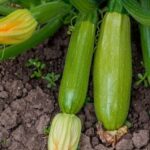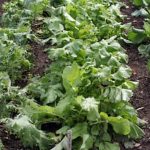Are you considering starting your own herb vegetable garden? Herb vegetable gardens are a great way to grow fresh, flavorful herbs and vegetables right in your backyard or on your balcony.
Whether you’re an experienced gardener or just starting out, cultivating an herb vegetable garden can be a rewarding and enjoyable experience. In this article, we will explore the benefits of growing and maintaining herb vegetable gardens, as well as provide tips on planning, designing, selecting plants, and caring for your garden.
When it comes to herb vegetable gardens, there are numerous benefits to enjoy. Not only do they provide a convenient supply of fresh, organic produce for your kitchen, but they can also add beauty and fragrance to your outdoor space.
Additionally, herb vegetable gardens offer the opportunity to connect with nature and reduce grocery expenses by producing your own food. With proper planning and care, you can cultivate a bountiful harvest of herbs and vegetables that will enhance both your culinary creations and overall well-being.
Before you get started on creating an herb vegetable garden, it’s important to have a solid plan in place. From choosing the right location to determining the layout of your garden beds, thoughtful planning can make all the difference in the success of your garden.
In the following sections of this article, we will delve into topics such as designing a garden layout, selecting suitable herbs and vegetables for your climate and tastes, as well as acquiring the necessary tools and supplies for maintaining your garden. Whether you have limited space or ample land available, there are strategies for everyone interested in establishing their very own herb vegetable garden.
Benefits of Growing and Maintaining Herb Vegetable Gardens
There are numerous benefits to growing and maintaining herb vegetable gardens, both for your health and for the environment. One of the primary benefits is the ability to have a fresh and readily available source of organic produce right in your own backyard. This can save you money on groceries and reduce your carbon footprint by decreasing the need for store-bought vegetables that may have been transported over long distances.
In addition to the environmental benefits, maintaining a herb vegetable garden can also improve your physical and mental well-being. Gardening is a great form of physical activity that can help reduce stress and improve overall mood. The act of caring for plants and watching them grow can be extremely rewarding, providing a sense of accomplishment and satisfaction.
Furthermore, growing your own herbs and vegetables gives you full control over what goes into your food. You can ensure that no harmful pesticides or chemicals are used in the cultivation process, leading to healthier and safer produce for you and your family. With the rising concerns about food safety, having your own herb vegetable garden allows you to have peace of mind about the quality of the produce you consume.
| Benefits | Data |
|---|---|
| Save money on groceries | Reduce carbon footprint |
| Improves physical activity | Reduces stress |
| Control over what goes into food | Peace of mind about food quality |
Planning and Designing Your Herb Vegetable Garden
When planning and designing your herb vegetable garden, there are several factors to consider in order to create a successful and thriving garden. The first step is to choose the right location for your garden. Most herbs and vegetables thrive in full sun, so it’s important to select a spot that receives at least 6-8 hours of sunlight per day.
Next, consider the layout and design of your garden. Raised beds are a popular choice for herb vegetable gardens as they provide good drainage and can be easier to maintain. Additionally, consider incorporating companion planting into your garden design, as certain herbs and vegetables complement each other and can help deter pests.
In terms of size, start small if you’re new to gardening. A 4×4 or 4×8-foot plot is a manageable size for beginners. As you gain experience, you can always expand your garden in the future. Make sure to also include paths between your raised beds for easy access and maintenance.
| Planning Considerations | Details |
|---|---|
| Location | Choose a spot with at least 6-8 hours of sunlight per day |
| Garden Layout | Consider raised beds and companion planting for an efficient design |
| Garden Size | Start with a manageable size like a 4×4 or 4×8 foot plot |
Selection of Herbs and Vegetables for Your Garden
When it comes to planning and designing your herb vegetable garden, selecting the right herbs and vegetables is crucial to ensure a successful and bountiful harvest. There are countless options to choose from when it comes to what to plant in your garden, so it’s important to consider factors such as your climate, growing conditions, and personal preferences.
One of the key benefits of growing an herb vegetable garden is the ability to have fresh ingredients at your fingertips for cooking and seasoning. When selecting herbs for your garden, popular choices include basil, cilantro, parsley, mint, and rosemary. These versatile herbs can be used in a variety of dishes and add a burst of flavor to any meal. When it comes to vegetables, consider options like tomatoes, peppers, cucumbers, lettuce, and spinach for a diverse range of produce.
In addition to considering what you enjoy eating or using in your cooking, it’s also important to research which herbs and vegetables thrive in your specific growing zone. Certain plants may require specific temperature ranges or sunlight exposure to thrive. By carefully selecting the right herbs and vegetables for your herb vegetable garden, you can set yourself up for a successful gardening experience with an abundant supply of fresh ingredients at your disposal.
Tools and Supplies Needed for Herb Vegetable Gardens
When it comes to starting and maintaining a successful herb vegetable garden, having the right tools and supplies is essential. Here are some of the items you will need to get started:
- Hand trowel: A hand trowel is useful for digging small holes for planting herbs and vegetables, as well as for removing weeds.
- Gloves: Protect your hands from dirt, thorns, and other potential hazards with a good pair of gardening gloves.
- Watering can or hose: Proper watering is crucial for the health of your herb vegetable garden, so make sure you have the necessary equipment to keep your plants hydrated.
- Pruning shears: Keep your herbs and vegetables looking tidy and encourage healthy growth by regularly pruning them with a pair of sharp pruning shears.
- Fertilizer: Depending on the specific needs of your herbs and vegetables, you may need to use organic or synthetic fertilizer to provide essential nutrients.
In addition to these basic tools, there are other supplies that can be useful for maintaining your herb vegetable garden:
- Garden markers: Use labeled stakes or tags to identify different herbs and vegetables in your garden.
- Mulch: Mulch helps retain moisture in the soil, suppresses weeds, and adds organic matter as it breaks down over time.
By gathering the tools and supplies listed above, you will be well equipped to start and maintain a successful herb vegetable garden. Investing in quality items will not only make gardening more enjoyable but will also contribute to the overall health and productivity of your plants.
Tips for Planting and Caring for Your Herb Vegetable Garden
Planting and caring for your herb vegetable garden requires some planning and attention to detail. Here are some tips to help you get started:
- Choose the right location: Ensure that your herb vegetable garden gets plenty of sunlight and has good drainage. Most herbs and vegetables thrive in well-drained soil and need at least six hours of direct sunlight each day.
- Prepare the soil: Before planting, make sure to prepare the soil by adding compost or organic matter to improve its fertility. Test the soil pH and adjust it if necessary to ensure optimal growing conditions for your plants.
- Select the right plants: When choosing which herbs and vegetables to plant, consider what grows well in your climate and the available space in your garden. Some popular choices for herb vegetable gardens include tomatoes, basil, parsley, mint, and rosemary.
Once your herb vegetable garden is planted, it’s important to care for it properly:
- Watering: It’s essential to water your herb vegetable garden regularly, especially during dry periods. Be careful not to overwater, as this can lead to root rot or other issues.
- Weeding: Keep an eye out for weeds in your garden and remove them promptly. Weeds can compete with your plants for nutrients and water, so it’s crucial to keep them under control.
- Pest control: Monitor your plants for signs of pests or diseases and take appropriate action if necessary. Consider using natural pest control methods to avoid harmful chemicals on your homegrown produce.
By following these tips for planting and caring for your herb vegetable garden, you’ll be well on your way to enjoying a bountiful harvest of fresh herbs and vegetables from your own backyard.
Harvesting and Using Your Homegrown Herbs and Vegetables
It’s finally time to enjoy the fruits of your labor in your herb vegetable gardens. Harvesting and using your homegrown herbs and vegetables can be a rewarding experience, whether you use them for cooking, medicinal purposes, or even homemade beauty products. Here are some tips for making the most of your bounty.
Harvesting Your Herbs and Vegetables
When it comes to harvesting herbs and vegetables from your garden, timing is key. It’s best to pick herbs early in the morning when their flavors are strongest. For leafy greens and vegetables, harvest them when they are young and tender for the best taste. Be sure to use sharp scissors or garden shears to avoid damaging the plant when harvesting.
Using Your Homegrown Herbs and Vegetables
The possibilities are endless when it comes to using your homegrown herbs and vegetables. Fresh herbs can elevate any dish – from salads to soups to main courses. You can also dry or freeze herbs for later use if you have an abundance. As for your homegrown vegetables, incorporate them into every meal possible for a burst of freshness and nutrients.
Preserving Your Herbs and Vegetables
If you find yourself with an overabundance of herbs or vegetables, consider preserving them for future use. Herbs can be dried or frozen, while vegetables can be canned, pickled, or frozen for long-term storage. This way, you can enjoy the flavors of your herb vegetable gardens all year round.
Troubleshooting Common Issues in Herb Vegetable Gardens
Pest Control
One common issue that herb vegetable gardeners may face is dealing with pests that can damage their plants. Some common pests include aphids, slugs, and caterpillars. To prevent these pests from causing damage to your garden, consider using natural remedies such as introducing beneficial insects like ladybugs or lacewings, using neem oil or garlic spray, and applying diatomaceous earth around the base of your plants.
Weed Management
Weeds can compete with your herbs and vegetables for nutrients, water, and sunlight. To effectively manage weeds in your herb vegetable garden, consider using mulch to suppress weed growth, hand-pulling weeds regularly, and using a hoe or other weeding tools to remove weeds from the root.
Disease Prevention
Preventing diseases in herb vegetable gardens is crucial for maintaining a healthy and thriving garden. Common diseases that may affect herbs and vegetables include powdery mildew, blight, and damping-off. To prevent diseases, make sure to space out your plants properly to allow for good air circulation, avoid overhead watering which can lead to moisture-related diseases, and remove any infected plants immediately to prevent the spread of disease to other plants.
By addressing these common issues in herb vegetable gardens promptly and effectively, you can ensure that your garden stays healthy and productive throughout the growing season. Remember that each garden is unique so it’s important to closely monitor the health of your plants and adjust your approach accordingly.
Conclusion
In conclusion, herb vegetable gardens offer a wide range of benefits and potential for the home gardener. The satisfaction of growing and maintaining such a garden is immeasurable, as it allows individuals to enjoy fresh, organic produce right from their own backyard. Through careful planning and design, selecting the right herbs and vegetables, and using proper tools and supplies, anyone can create a successful herb vegetable garden.
One of the most rewarding aspects of maintaining an herb vegetable garden is being able to harvest your own homegrown herbs and vegetables. Whether you choose to use them in your cooking or to create homemade remedies, having access to fresh, flavorful ingredients at your fingertips is truly invaluable. Additionally, by troubleshooting common issues that may arise in your garden, you can ensure that your plants thrive and continue to provide abundant yields throughout the growing season.
As you enjoy the fruits of your herb vegetable garden, it’s important to remember the effort and care that went into cultivating such a bountiful harvest. With commitment and dedication, anyone can experience the joy of tending to a thriving herb vegetable garden and reaping the rewards for years to come.
Whether you’re a seasoned gardener or just starting out, there are endless possibilities for creating a beautiful and productive space that will enrich your culinary experiences and enhance your overall well-being.

If you’re looking to get into vegetable gardening, or are just looking for some tips on how to make your current garden better, then you’ve come to the right place! My name is Ethel and I have been gardening for years. In this blog, I’m going to share with you some of my best tips on how to create a successful vegetable garden.





